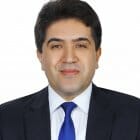The long and painful night connecting July 15 to July 16 witnessed a series of extraordinary events that rattled Turkey’s democracy through an unorthodox military coup perpetrated by military officers associated with a terrorist organization secretly formed by messianic and secretive cleric Fethullah Gülen. Gülen has been operating across Turkey and the world for over five decades so as to lay down the foundations of a secretive power bloc, which has included education institutions, banks, hospitals, business conglomerates operating in a wide variety of sectors, business associations, trade unions, etc., with substantial international links.
Recommended
It emerged that the Gülenist soldiers and civilians involved in the coup attempt were carrying 1 dollar banknotes, allegedly blessed by Gülen himself, as a coded means of communication. The coup was also unorthodox from the perspective of organized violence against the close entourage of the president, the Chief of Staff and major commanders of the army, crucial state institutions and the civilian population. Unprecedented events, including the bombing of the Turkish National Assembly, the headquarters of the Intelligence Agency and Special Police Forces by F16s dropping laser-guided bombs, the assassination attempt targeting the president, and the use of high-tech attack helicopters, heavy artillery and tanks against civilians differentiated this coup from its predecessors.
The wide scope and inclusiveness of the democratic reaction to the coup was also unique in Turkish political history, as civilians in both urban and rural centers, municipal workers and NGOs resisted the initiative that planned to pull Turkey into the status of a third-world country. Frankly speaking, Turkey’s experimentation with democratic rule was interrupted on numerous occasions in 1960, 1971, 1980 and 1997, and the idea of “military-led modernization from above” has deep ideological roots that go back at least a century, reaching the Young Turks and early Kemalists.
Despite intensive dialogue and integration attempts with NATO, the European Union and Western institutions for over half a century, the shadow of a potential military takeover has never disappeared from the horizons of the world’s 18th largest economy. But, in previous military interventions, particularly those in 1960 and 1980, the country was struggling with acute socio-economic crises and there was a need for strategic change in development policy, which were used as precepts by the generals to justify the coups. Looking at the 15 July Gülenist coup attempt, it is very clear that there was no socio-economic basis for the coup as the Turkish economy was displaying a respectable growth performance in a global environment that has been demonstrating sluggish growth. There was also no strong social support for the attempted coup.
The Gülenist coup attempt was thwarted thanks to the strong leadership of President Erdoğan, the powerful reaction of the Police Special Forces and the noble sacrifices of civilians at a cost of around 250 martyrs and 2,000 wounded. Despite the huge humanitarian and psychological impact of the attempted coup, the potential impact on the economic structure constituted one of the most important crunch points. Turkey was caught by this heinous coup attempt while the economy was gaining steam, normalization attempts with Russia, Israel and Egypt in foreign policy were advancing with potentially significant economic contributions and strong growth prospects were expected for 2017.
Despite initial hesitation in the international markets, strong macroeconomic fundamentals and effective crisis management by the Central Bank and economic bureaucracy helped to keep the reflections on banking and financial sectors at a minimum. Despite a temporary hike in exchange rates, the stock exchange did not experience a collapse in the value of traded stocks, and there was no speculative attack or exodus of international investors. Perceived investment risks associated with Turkey in the eyes of international investors did not jump either. The rise in the CDS figures during the coup attempt that reflect the risk perceptions of the country for investors was roughly equal to the rise observed when previous Prime Minister Davutoğlu declared his resignation.
Every coup attempt creates multifaceted social, political and economic costs and, objectively speaking, the 15 July Gülenist coup attempt will not be seen as an exception. Since a state of emergency has been declared to normalize the security situation, short-term international investors might be a little jittery in the short term. But in the medium and long term, structural reforms and incentive packages that were announced to boost domestic and international investments before the coup will continue unabated. Notwithstanding the premature and politically motivated decisions by some international credit rating agencies, those investors who place their faith in Turkey with a long-term vision are bound to win as the economy has ample potential for growth.
The post-coup environment will witness a process of purification whereby Gülenist elements embedded in the state bureaucracy, academia, business circles and the media will face legal investigations and prosecutions. This purification process is bound to exclude harmful elements from the state establishment and the private sector, thereby contributing to Turkey’s socio-economic dynamism in the coming years.





